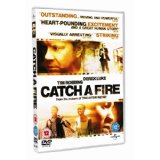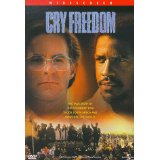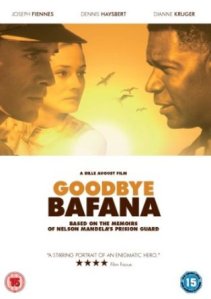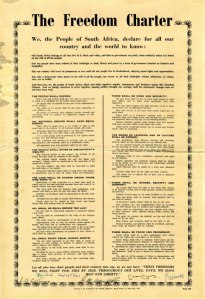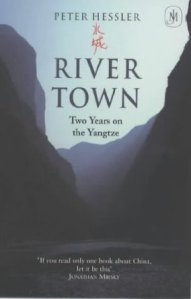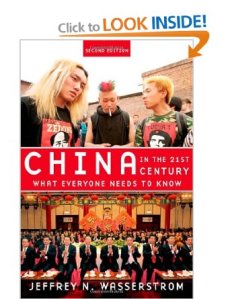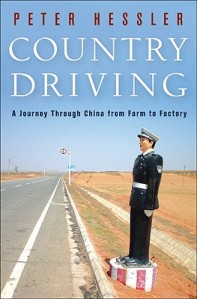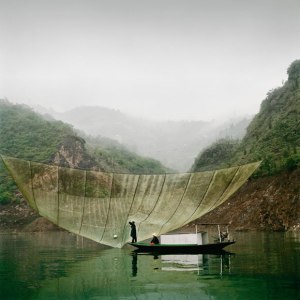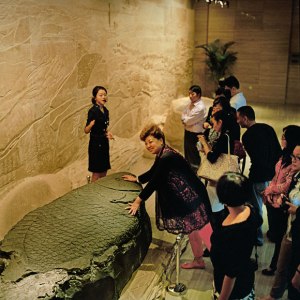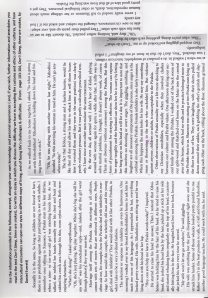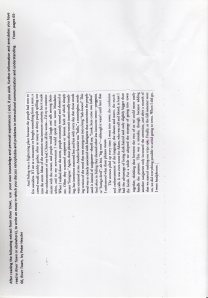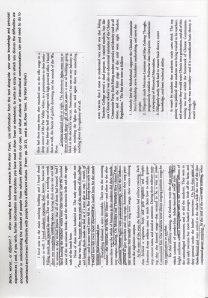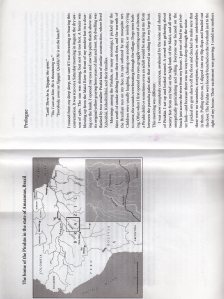Students are continuing to read, take notes on, and discuss Peter Hesler’s book “River Town”. After reading “Shakespeare with Chinese Characteristics”, which discusses Peter’s literature classes with Chinese university students, this week we will be looking at the chapter “Running”.
Author Archives: Betsy Ferguson
lezione del 29 ottobre sospesa
– il recupero sarà comunicato in settimana.
Welcome back ! Take a detour with me to South Africa before heading off to China
As the year started, our first activities involved taking a look at how so very much of what is at the very heart of a culture today depends on the history and past experiences of its people.
We began by reading and discussing the experience of a young American Peace Corps volunteer to South Africa. The text is provided below. As you read the short text, think about the following questions:
- what surprised the author, and why,
- how Italians face similar crises,
- your personal reaction, and how you would have felt if you had been in the author’s shoes,
- what the South Africans’ way of coping says about them…. and what Italians’ reactions in similar situations say about us, and our culture.
Eat, Drink and Be Mournful
By Laura Portalupi ’02 – Peace Corps/South Africa 2006-2008 published in The Miamian, at http://www.miamialum.org/s/916/interior-3-col.aspx?sid=916&gid=1&pgid=2770&sparam=Laura%20Portalupi&scontid=0
Before leaving for South Africa, I read a statistic that South Africans spend more time at funerals than they do having their hair cut, shopping, or enjoying barbecues. It was a grim fact girding my journey abroad.
Sure enough, days after arriving in the rural community where I would spend the next two years, a colleague brought me to a funeral for someone whose name I only learned once I got there.
In rural South Africa, funerals are a significant part of the culture and open to anyone who feels inclined to attend. I lived in a large village of about 18,000 people in a region promoted on signs along major roads as “The Cultural Heartland.” It was also a place ravaged by AIDS, alcoholism, crime, and road accidents.
The traditional funeral began around 6 a.m. on a Saturday morning. Women dressed in long skirts, tied a tuku around their hair, and covered their shoulders with a shawl. Men wore dress shoes and jackets – jeans were OK. The service began at the home of the deceased and concluded in the cemetery with the burial. Beyond the graveyard gates, the somber tone was traded for a social one, and everyone returned to the house for a full meal. The whole event was typically over by 8:30 a.m.
My host sister seemed to be a professional funeral-goer. Many Saturdays I would emerge from my room mid-morning, only to find my sesi humming lingering hymns as she scrubbed laundry. For her, as for many others, attending funerals was as commonplace as washing clothes, cooking dinner, taking the bus to town.
A few months after I completed my Peace Corps service, I received some tragic news from South Africa – the only daughter of my dear friend, Lorraine, had been killed in a car accident. Lorraine had been my confidante and kindred spirit. She was sensitive and generous and radiated love for others – she was the epitome of compassion.
I hated the omnipresence of death in South Africa. The way death sidled up and stole people. It just wasn’t fair.
When I spoke with Lorraine on the phone, her gentle voice was intact, but wounded. “It’s part of life,” she said.
It was a truism I had heard again and again in South Africa. But it wasn’t just a truism, I realized now – it was the truth. South Africans have an intimate relationship with death, and the routine, the familiarity, the acceptance – none of it was callousness. It was courage.
We then moved on to watch and discuss three very powerful films about South Africa under the apartheid regime: Goodbye Bafana !, Cry Freedom and Catch a Fire. These films provide not only a glimpse into the lives of black activists Nelson Mandela and Steve Biko… they also provide a thought-provoking look at the lives of normal South Africans who struggled to come to terms with the wrongs of the apartheid system. We saw that there were also brave white South Africans who decided to take a stand against what was wrong in their country: people like Donald Woods, and James Gregory.
Students took a look at the Freedom Charter, an important document written by South African anti-apatheid activists which was banned under the apartheid regime. Here is a copy of the document, in Microsoft Word format, and a photographic image of the original leaflet:
I encourage everyone who was unable to be in class to watch these films, either renting them, watching them online in streaming, or borrowing them when you come to class. It will be well worth your time to see them… and you will get some good practice in regarding English accents other than the standard UK Queen’s English !
If you enjoyed reading and learning more about South Africa, I also strongly enourage you to read a classic in world literature which is a deeply moving book, “Cry the Beloved Country”, by Alan Paton. 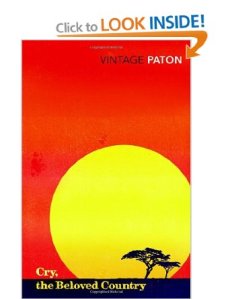 First published in 1948, Cry The Beloved Country stands as the single most important novel in twentieth-century South African literature. Amongst the reviews I have seen of the book, these comments may convince you:
First published in 1948, Cry The Beloved Country stands as the single most important novel in twentieth-century South African literature. Amongst the reviews I have seen of the book, these comments may convince you:
“The greatest novel to emerge out of the tragedy of South Africa and one of the best novels of our time” (The New Republic)
“A beautiful novel, rich, firm and moving-its writing is so fresh, its projection of character so immediate and full, its events so compelling and its understanding so compassionate, that to read the book is to share intimately, even to the point of catharsis, in the grave human experience treated.” (New York Times)
For the 1st semester, you will need to purchase a copy of Peter Hessler’s best-selling book “River Town” , which we will be reading and discussing together in class. Here is some background information about modern-day China to get started:
First, an interview with Peter available on FORATV: http://www.lostlaowai.com/blog/ae/china-videos/video-peter-hessler-on-chinas-past-and-present/
And a series of articles and interviews:
http://asiasociety.org/blog/asia/interview-peter-hessler-his-surprising-first-trip-china
You can also find lots of information on the web about other people’s experiences in China– and cultural misunderstandings:
http://www.ted.com/search?cat=ss_all&q=China
for ex:
http://www.ted.com/talks/martin_jacques_understanding_the_rise_of_china.html
http://www.ted.com/talks/shaolan_learn_to_read_chinese_with_ease.html
www.ted.com/talks/leslie_t_chang_the_voices_of_china_s_workers.html
http://www.npr.org/templates/story/story.php?storyId=129186046
There are also hundreds and hundreds of interesting blogs about China– some with good and reliable information, others less accurate… some examples are
http://blogs.princeton.edu/pia/personal/ttalhelm/2009/03/the_unluckiest_phone_number_ev.html
http://blogs.princeton.edu/pia/personal/ttalhelm/2010/09/unhappy_china.html
http://blogs.princeton.edu/pia/personal/ttalhelm/2009/06/found_in_translation_part_i.html
http://blogs.princeton.edu/pia/personal/ttalhelm/2009/01/outliers.html
http://blogs.princeton.edu/pia/personal/ttalhelm/2008/10/embarrassment.html
http://blogs.princeton.edu/pia/personal/ttalhelm/cultural_misinsights/
http://blogs.princeton.edu/pia/personal/ttalhelm/2009/06/my_chinese_cell_phone_loves.html
http://blogs.princeton.edu/pia/personal/ttalhelm/pearls_of_miscommunication/
ex.:http://blogs.princeton.edu/pia/personal/ttalhelm/2008/12/when_the_police_enforce_gramma.html
If you are very interested in China, some fascinating books include:
We will also be reading several extracts from Peter Hessler’s 3rd book about life in China, Country Driving:
Meet you in Fuling ;-)
To help you make sense of what you have read and of your reaction to it, my suggestion is for you each to keep a reader’s diary– perhaps a learner’s diary about what you think about your changing thoughts, attidtudes and beliefs.
A diary is a personal and very intimate thing– yet I hope you will be willing to share the thoughts you note down in yours with your classmates, and me !
Virginia Woolf once wrote about diaries: “What sort of diary should I like mine to be? Something loose knit and yet not slovenly, so elastic that it will embrace anything, solemn, slight or beautiful that comes into my mind. I should like it to resemble some deep old desk, or capacious hold-all, in which one flings a mass of odds and ends without looking them through.”
Feel free to keep your diary in any form you wish. To make keeping notes easier, I am including here a ‘diary’ form that you can use, or adapt, to keep notes on anything and everything that catches your attention in the book: curiosities, intercultural misunderstandings, things you learn about China… and ideas about intercultural communication to remember for the future and keep in mind during your working life.
For next week, please get started reading River Town ! We will be discussing the first 52 pages…. Chapter 1 “Downstream” + The City, which describes FUling, and Chapter 2, “Shakespeare with Chinese Characteristics”. I hope you enjoy the book, and encourage you to think, as you read it, not only about the differences between Chinese university life and yours, but also about what these differences would mean in your life, in shaping your worldview, your dreams, and your hopes for the future.
The following photos give you a glimpse at Fuling today, 13 years after the publication of River Town.
If you are having trouble picturing China in your mind’s eye, why not try browsing through some of the fantastic articles, photo galleries, videos and more published on the National Geographic website? More than 50 of them have been published by Peter Hessler !
some great starting places….
a 5-minute video entitled “China from above” with spectacular photography:
http://ngm.nationalgeographic.com/video/player?titleID=1496340467#
amazing photographs:
http://ngm.nationalgeographic.com/2008/05/china/aerials/steinmetz-photography
an article published by Peter Hessler in 2013, describing a return visit to Fuling and how the city’s growth reflect’s China’s enormous advances…
http://ngm.nationalgeographic.com/2013/03/fuling-china/hessler-text
a fantastic article entitled “China’s Journey” published in National Geographic by Peter Hessler in 2008:
http://ngm.nationalgeographic.com/2008/05/china/journey/hessler-text
National Geographic provides a wealth of information about China: I suggest you browse through the magazine’s website…
http://ngm.nationalgeographic.com/2011/06/green-china/girard-photography
http://ngm.nationalgeographic.com/2008/05/china/architecture/ted-fishman-text
http://ngm.nationalgeographic.com/2001/11/ancient-china/hessler-text
a quiz on architectural treasures:
http://ngm.nationalgeographic.com/2008/05/china/architecture/quiz-interactive
River Town by Peter Hessler
This semester we will be beginning by taking a look at what is involved in understanding another culture and another country…. starting with a look at the importance of history in understanding a country and its people today.
Our first step was taking a look at an English-speaking country that many students don’t know a lot about: South Africa. Together we have watched and discussed three films: Goodbye Bafana, Cry Freedom and Catch a Fire. Goodbye Bafana is the story of James Gregory, a prison guard who was responsible for the security of Nelson Mandela for many years, and who had the privilege of being an eye-witness and protagonist in his country’s struggle to rise up out of apartheid. Cry Freedom is the story of a journalist, Donald Woods, who befriended Steve Biko, an activist who was murdered by the South African government. The film documents their friendship, and Donald Woods’ determination to see South Africa change for the better. The final film, Catch a Fire, is the story of an innocent black man trying to get by despite his country’s turmoil,and who is unjustly accused of being a terrorist.
Below you will find the first two chapters of the book River Town by Peter Hessler, which we will be reading together and discussing in the first semester. Hessler’s book takes a close look at how a country’s history and land help to shape its people.
River town 01 River town 02 River town 03 River town 04
intercultural training : what should it include ?
For your final project (to be brought with you and discussed at the oral exam), you will need to prepare a short dossier (as described below in the previous post).
Several students have asked how long the dossier needs to be: the answer is: as long as you think it needs to be. Having said that, I would say a minimum of 5 pages… the length you think necessary to give important basic information for a person who will be traveling to live in Fuling, or with the Piraha in the Amazon basin. You will probably opt to not give information on all of the different topics listed below: you may not have information on some aspects, and others may not be pertinent. What you need to try to do is give as complete and detailed info as possible on what you feel are the most important things to know in order to minimize culture-shock and adapt and work successfully. I suspect that most students will write about ten pages.
In any case: you can also see this project work as study and preparation for the oral exam: when you’ve thought carefully about one of the two books and prepared your dossier, you should be well prepared and ready to face the oral exam with confidence !
Here are some examples of the kind of information generally included in cross-cultural training materials.
WHAT CROSS-CULTURAL TRAINING SHOULD INCLUDE:
BASIC TRAINING:
- understanding your own culture and how it affects your behaviour
- comparing home and host cultures
- defining culture shock and how to live through it
LOGISTICS:
- What to take
- setting up your household
- the local economy
- visa and passport requirements
- residence and work documents
- legal requirements
- housing
- utilities/appliances
- electric current
- weights and measurements
- mail, e-mail, telephone, cables, faxes
- transportation
- banking
- insurance
- schools
- currency
- climate / weather
- legal holidays
- servants and services
- survival needs
- making friends (for children, too)
- establishing a routine
- finding where to buy / obtain what you need
- entertaining guests
- leisure activities
- how family members can support each other
- maintaining old ties and friendships
- security and safety
- special issues for women (safety, hygiene, health care)
IN-DEPTH CULTURE STUDIES:
- demographics
- ethnic composition
- local and national history, geography, politics, economics
- education system
- religious / philosophical beliefs
- inventions and scientific achievements
- sports and games
- places of scenic and cultural interest
- local traditions
LANGUAGE TRAINING
NONVERBAL COMMUNICATION
- This includes gestures and body language
FAMILY HEALTH CONSIDERATIONS
- Assessing special health needs
- Learning where to find doctors, dentists, etc.
- Know which prescription and nonprescription medicines to take
SOCIAL DO’s and TABOOS
- This includes business and nonbusiness situations
BUSINESS PRACTICES AND PROCEDURES
CULTURAL MINDSET
- National character and traits in host country
- Values
- Implicit cultural assumptions
- Thought processes
CURRENT EVENTS AND ISSUES
PROBLEMS EXPATRIATES FACE
here’s a description of the lettorato work, and the written and oral exams & project work from the vademecum:
PER IL CORSO DI LAUREA MAGISTRALE IN COMUNICAZIONE INTERCULTURALE D’IMPRESA
II anno (Dott.ssa Elizabeth Ferguson, betsypontellini@yahoo.com)
The English 2 course is designed to help students take a closer look at the concept of intercultural communication and culture shock. During the course, students will be required to read and discuss two texts:
“Do Not Sleep, there are snakes” by Daniel Everett (any edition) and
“River Town” by Peter Hessler (any edition)
During class, we will be examining how a country’s history and geography affect people’s behaviour, through reading and video work regarding China, the Amazon Basin, South Africa, India, and other countries.
For the ORAL EXAM, students will be required to prepare a final project.: an intercultural training dossier. Students will be given the choice of working in teams to prepare a dossier on Australia or South Africa (using the books and films provided alongside their own research) or doing individual projects, in which case each student will be asked to use the information they have gleaned from “Do NOt Sleep There Are Snakes “ OR “River Town” to prepare a training manual designed to help prepare a new graduate for work either as an assistant to Dan Everettt in working with the Piraha tribe, or as an Italian language instructor who will be working at the Fuling Teacher’s College. Additional information regarding the types of information to include in the dossier can be found on the class blog. https://cidi2anno.wordpress.com/
WRITTEN EXAM: Students will be required to write an essay on an intercultural theme, using the information gained in their two years of intercultural studies. Students will find the two coursebooks and the information on the blog useful in developing their essay.
mock tests !
First classwork and homework assignments, A.A. 2012-2013
A warm welcome to all new students who will be attending the CIDI 2nd year English course during the 2012-2013 academic year. I look forward to meeting you all, and hope that you will enjoy our classes, learn a lot, and leave the course feeling better prepared to use English with success, and to face intercultural adventures in the world of work !
My name is Elizabeth Ferguson, and I will be your teacher this year. The coursework you will be doing has been chosen with the goals of helping you to practice and improve your English language skills, learn more about intercultural issues, and become more proficient at writing and speaking.
Each week you will find various materials posted on this blog…. homework assignments, PowerPoint presentations, suggested links to investigate, and more. Whether or not you plan to attend lessons, please try to keep up to date, and, week by week, print out the materials provided, do the exercises and activities and bring them to class.
Hello also to any students who have enrolled in the programme but will be unable to attend lessons due to work obligations, health problems, etc. You will need to keep up with classwork in order to be ready for the exams at year’s end. I urge anyone who will be unable to attend lessons to contact me ASAP, and to keep in contact throughout the year through this blog and, if necessary, via e-mail or personal appointments. My e-mail address is: betsypontellini@yahoo.com. I receive lots of e-mail, so it’s very easy for student e-mails to get lost or buried in my inbox: my suggestion is to please include a clear subject line — “2nd year student – CIDI – question” or something similar. 😉
During 1st semester, my office hours (ricevimento) will be:
Thursdays, 1 to 2 pm, Istituto di Lingue — or by appointment for other days and times
During the 1st semester, our classes will be held as follows :
Tuesdays 9 am – 11 am Aula 1 CLA
Thursdays 11 am – 1 pm Aula F – Istituto di Lingue
Office hours (ricevimento) Thursdays, 1 to 2 pm, Istituto di Lingue (ufficio lettori)
N.B.: Si raccomanda, in caso di neve, di telefonare prima di mettersi in viaggio. Chi arriva da fuori Urbino dovrebbe in ogni caso prendere sempre un appuntamento via e-mail — può sempre capitare una riunione urgente in Facoltà, o una malattia improvvisa, e il conseguente annullamento del ricevimento.
Your first classwork and homework !
Week 1:
You will need to get a copy of 3 different books for this academic year (see the Books menu). The first book we will be reading and discussing together is “Do Not Sleep, There Are Snakes” by Daniel Everett, so you will need to get a copy of the book, either through a local bookstore or online (from Amazon.it or Amazon.co.uk.) Please note that you can download an e-book from http://www.amazon.it .
In the meanwhile, you will find the first pages of the book available here for you to download.
After reading this book, we’ll be moving on to read 2 books from Peter Hessler’s trilogy of books about life in China. Peter first visited China as a Peace Corps worker, and taught English at Fuling University. His adventures were the inspiration for his first book, ‘River Town’. Today Peter is a hugely successful and award-winning author and reporter who has worked for the world’s most important publications.
During the academic year, students will be divided into 2 or 3 teams that will each work on creating an intercultural training website. This will be your main project, and the reading and discussion work we do during the first semester will be in preparation for developing English-language training materials. More news about this will be given in the coming weeks.
In the meanwhile…. let’s get started with ‘Do Not Sleep, There Are Snakes !”
Below, you’ll also find a Power Point presentation about idioms. This year, you will learn at least 1000 new idiomatic expressions… some for fun, some for business !
Here are the first few pages of the book, to get you started !



